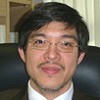When You're Gone, Your Tea Gets Cold
A Lesson To Learn From Retirement
“When you’re gone, your tea gets cold.”
This is a much quoted expression in Chinese writing and speech. This was in fact a line from the lyrics of a Pekingese Opera. It is a Chinese tradition that when you are entertaining someone, you keep pouring him hot tea. At work, you also keep your senior’s cup filled with hot tea whenever you can. So this expression is coined to describe the fading of warm reception one receives when he retires from a position at work or in social life. It is also extended to mean “when you’re dead and gone, you don’t leave a trace behind.”
Why am I talking about these? Lately, more and more of my friends are retiring. One of them told me that the hardest thing to cope with was a sudden drop in social exposure. Nobody calls you up to ask whether you can go to a certain meeting or function. Nobody asks whether you can do lunch (they probably know you always can). You even stop getting invitations to some annual functions that you have been attending for the past twenty years. Did the organizers make a mistake? No, they sent the invitation to the right place – your successor’s office. Nobody wants to know what you are, or your company is, up to, unless they happen to walk into you and have to say something. It took him a good two months to get used to do this. He said, “now that I don’t mind this at all, I can tell you the bright side of this. You have all the time for yourself. You can sit at the computer all day and browse over things previously meaningless to you. Of course, you have to convince your wife that you are doing something very meaningful. You can go out for a short walk and end up returning home two hours later. When you come across someone on your way, you start seeing things you didn’t notice before. This is partly because you are walking much slower and have more time, but also because your mind is not busy thinking about your work. I am picking up Tai-Chi and painting. Both of these had been appealing to me for some time. I couldn’t convince myself to do these then as it felt like such a waste of time. Now I can define meaning for myself, instead of adopt meanings defined by my corporate, profession or position.”
This conversation with my friend was inspiring to me. I am always hard-pressed for time. Often I have to decide how to invest the little time left over from professional work and family commitments. I have to go to functions I mustn’t miss and drop the functions I probably can skip once in a while. I have to make sure I never go to the occasions that I don’t have to go, even though they will be so glad to see me. With this foresight into the future that my friend shared with me, I probably should go to the occasions where they are truly delighted to see me and forget about the “mustn’t misses”. These are the people who are more likely to invite me again years later, after my retirement. The other important choice to make is between the ability to achieve output at work versus the ability to be happy. The two abilities could have been the same when you are starting your career. You enjoy work and achievement so much that this alone will keep you happy. For the lucky few in us, this enjoyment stays high for years and years. For the rest of us, you have to put work where it belongs, a shrinking portion of your life. You’d have to fill this void with some new meanings. These meanings have actually been there all the time. They have only been squashed by your career life. Now could well be their turn to grow and enrich your life.
I asked my friend, “Do you agree that when you’re gone, your tea gets cold?”
“Yes, when I left, my tea did get cold. Lucky that it hasn’t taken me long to really enjoy drinking cold water from my own water bottle instead.”




